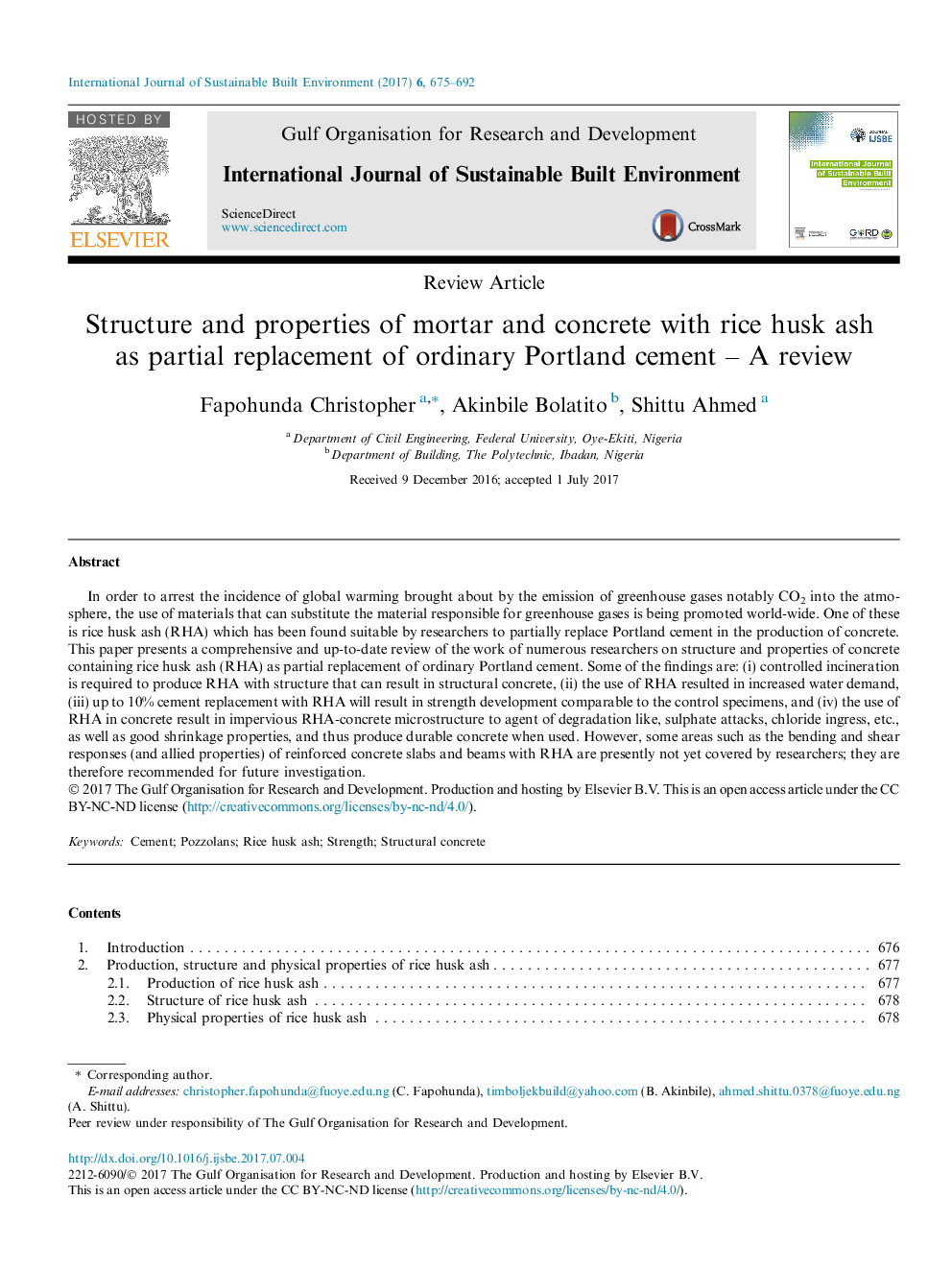| Article ID | Journal | Published Year | Pages | File Type |
|---|---|---|---|---|
| 6659518 | International Journal of Sustainable Built Environment | 2017 | 18 Pages |
Abstract
In order to arrest the incidence of global warming brought about by the emission of greenhouse gases notably CO2 into the atmosphere, the use of materials that can substitute the material responsible for greenhouse gases is being promoted world-wide. One of these is rice husk ash (RHA) which has been found suitable by researchers to partially replace Portland cement in the production of concrete. This paper presents a comprehensive and up-to-date review of the work of numerous researchers on structure and properties of concrete containing rice husk ash (RHA) as partial replacement of ordinary Portland cement. Some of the findings are: (i) controlled incineration is required to produce RHA with structure that can result in structural concrete, (ii) the use of RHA resulted in increased water demand, (iii) up to 10% cement replacement with RHA will result in strength development comparable to the control specimens, and (iv) the use of RHA in concrete result in impervious RHA-concrete microstructure to agent of degradation like, sulphate attacks, chloride ingress, etc., as well as good shrinkage properties, and thus produce durable concrete when used. However, some areas such as the bending and shear responses (and allied properties) of reinforced concrete slabs and beams with RHA are presently not yet covered by researchers; they are therefore recommended for future investigation.
Related Topics
Physical Sciences and Engineering
Chemical Engineering
Chemical Engineering (General)
Authors
Fapohunda Christopher, Akinbile Bolatito, Shittu Ahmed,
